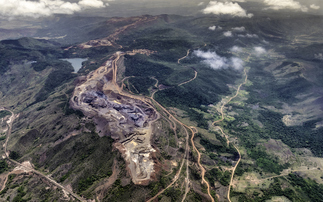As COP21 turns its attention to agriculture, Molly Scott Cato argues much more needs to be done to support sustainable practices
While all eyes have been on the Volkswagen emissions scandal, there is a cow in the room which must not be ignored if we are to address greenhouse gas emissions and other pollutants.
Agriculture accounts for one third of all emissions, with farming responsible for 66 per cent of the UK's nitrous oxide emissions and 46 per cent of UK methane emissions. In fact, agricultural pollutants are the number one cause of air pollution, even in urban areas.
The COP21 summit will therefore need to address agricultural emissions if farming and food production are to make a positive contribution to tackling climate change.
In the EU, the long-overdue Review of the National Emissions Ceilings (NEC) directive, strengthens national commitments to reduce emissions. In addition to alignment with the internationally-agreed 2020 limits of the Gothenburg Protocol, the European Parliament has agreed new binding commitments for 2025, as well as 2030.
For the first time, the revision includes commitments to methane reduction, as well as tightening existing limits on ammonia - both key agricultural pollutants. The NEC proposals target emissions from large industrial farms, but excludes small farms which are less input-intensive in terms of pesticides and fertilizer usage and therefore less polluting. This is particularly the case with organic farms.
Indeed some small-scale farmers are pioneering ways to reduce their already lower impact on the environment. Wyke Farms in Somerset is one such innovative example. The farm generates biogas from its own on-site anaerobic plant, converting 75,000 tonnes of farmyard manure, slurry and apple pomace into energy. The biogas not only powers their cheese dairy but provides energy to the local village. The company has become the UK's first national cheddar brand to be 100 per cent self-sufficient in its own green energy.
So the cow in the room can go green, but it will need to stand firm against the inevitable backlash from agribusiness, resistent to action on their emissions. An ambitious international climate agreement that properly recognises and enables action to curb agriculture's environmental impact could be a great starting point.
Molly Scott Cato is Green MEP for the South West of England and is a member of the European Parliament's Agriculture Committee
This article is part of BusinessGreen's Road to Paris hub, hosted in association with PwC.







